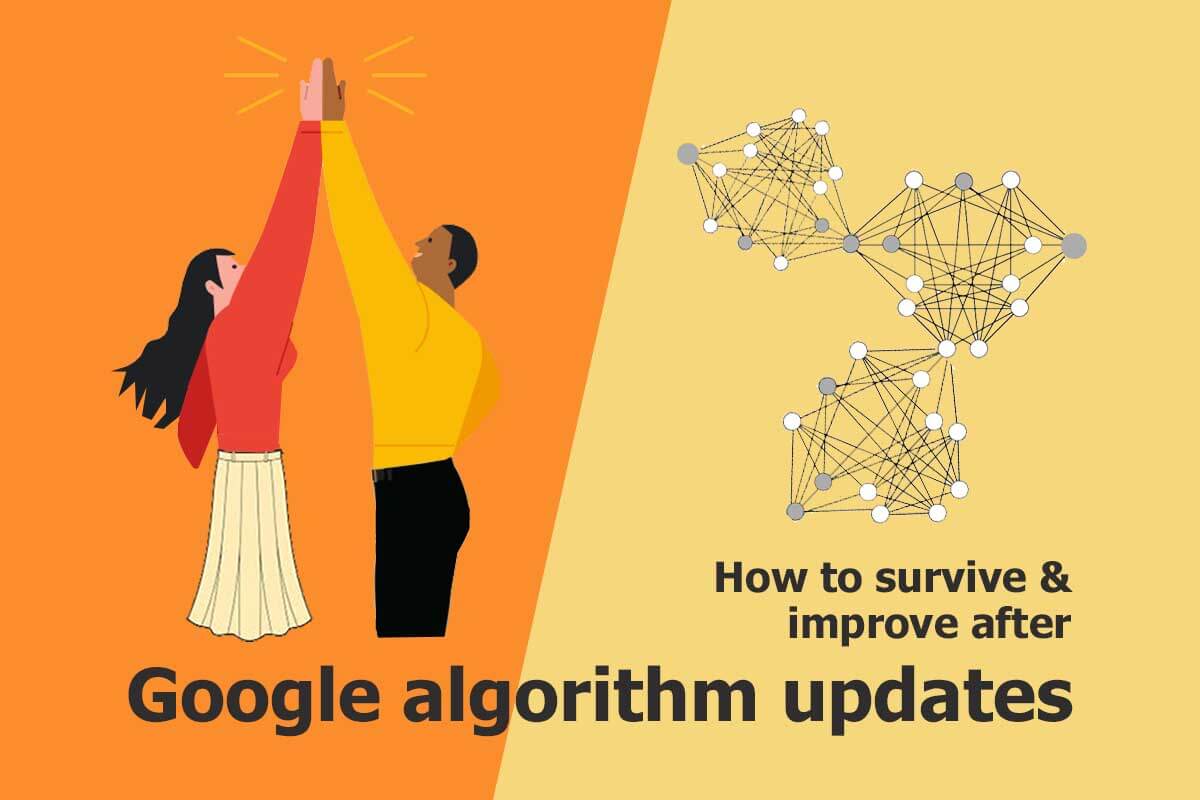Decoding Google's Algorithm Updates: A Plan for SEO Success
Decoding Google's Algorithm Updates: A Plan for SEO Success
Blog Article
Recognizing the Implications of Google's Formula Updates on SEO Methods and Rankings
In the ever-evolving landscape of search engine optimization (SEO), the implications of Google's formula updates have actually ended up being a centerpiece for companies and online marketers aiming to keep or improve their on the internet exposure (Google’s Algorithm Updates). As Google remains to fine-tune its algorithms to provide customers with the most high-grade and appropriate search results page, understanding how these updates influence search engine optimization positions and techniques is vital. From the refined changes in keyword approaches to the much more obvious emphasis on individual experience, the interplay in between formula updates and search engine optimization methods reveals an intricate web of factors to consider that demand constant watchfulness and flexibility
Advancement of Google's Algorithm

The Panda upgrade, launched in 2011, targeted low-grade web content and penalized websites with duplicate, thin, or unimportant content. Penguin, released a year later, resolved link spam by devaluing manipulative links. Hummingbird, presented in 2013, marked a shift in the direction of semantic search, recognizing the context and intent behind individual questions rather than simply matching key words.
These updates forced internet site proprietors and search engine optimization experts to prioritize user experience, high quality material, and all-natural link structure approaches to improve their rankings in Google's search outcomes. The advancement of Google's algorithm emphasizes the search engine's commitment to delivering beneficial and appropriate material to individuals while punishing strategies intended solely at video gaming the system.
Effect On Keyword Phrase Technique
With the advancement of Google's algorithm in the direction of prioritizing individual experience and content relevance, the Effect on Keyword phrase Strategy has actually come to be significantly important for web site proprietors and search engine optimization specialists seeking to straighten with these online search engine updates. Keyword phrases are no more simply concerning matching search terms however understanding user intent and delivering useful material. Google's updates, such as BERT and RankBrain, emphasis on all-natural language handling and context, making keyword technique more advanced.

Furthermore, with Google's focus on semantic search and user-focused content, search phrase padding is no more effective and can even hurt rankings. Instead, integrating key phrases naturally into premium, pertinent content is essential. By understanding the impact of Google's formula updates on keyword phrase technique, site proprietors can enhance their SEO initiatives and boost their exposure in search engine result.
Modifications in Content Optimization
As the landscape of search engine optimization proceeds to develop, internet site proprietors and SEO specialists are observing considerable changes in content optimization techniques. In the wake of Google's formula updates, there has been an expanding focus on developing high-quality, relevant, and reliable web content that gives value to individuals. This implies that merely packing key words into short articles is no more effective; instead, content must be well-written, engaging, and customized to satisfy the requirements of the target audience.
Moreover, there is a better focus on user experience and satisfaction, with search engines satisfying internet sites that use a seamless browsing experience and beneficial info. As a result, content optimization currently entails not just incorporating appropriate key words naturally but additionally structuring content in a way that is very easy to navigate and read.
Relevance of User Experience
Enhancing individual experience on a site is critical in modern SEO methods, working as a vital consider identifying a website's exposure and success in internet search engine positions. User experience includes numerous elements such as site rate, mobile-friendliness, user-friendly navigating, and interesting material (Google’s Algorithm Updates). Google's formulas significantly focus on web sites that supply a seamless and enjoyable customer experience, as it straight associates with user satisfaction and retention
A favorable user experience not only enhances a site's search engine optimization efficiency but likewise contributes to higher conversion prices and consumer commitment. Sites that are very easy to navigate, aesthetically appealing, and supply valuable content are more most likely to visit here bring in and keep visitors. In contrast, websites with poor individual experience metrics might deal with high bounce prices and reduced dwell times, signifying to online search engine that the web content may not be pertinent or engaging for users.
As a result, spending in enhancing individual experience is crucial for maintaining an affordable edge in the ever-evolving electronic landscape. By prioritizing user-centric design and performance, websites can improve their site web online search engine rankings and ultimately drive even more natural traffic and conversions.
Strategies for Future Adaptation
Progressing in the swiftly evolving landscape of search engine optimization, it is vital for businesses to embrace cutting-edge approaches for future adaptation. One key technique is to concentrate on creating top quality, relevant web content that gives value to customers. This web content should be enhanced for key words that align with individual intent and should be consistently updated to stay existing and competitive.
In addition, companies need to focus on mobile optimization to satisfy the enhancing number of individuals accessing the internet by means of smart phones. Ensuring that websites lots promptly, are simple to navigate, and give a seamless user experience on mobile phones can assist enhance search positions and individual satisfaction.
In addition, leveraging information analytics and user behavior insights can aid companies recognize their target audience much better and tailor their SEO strategies accordingly. By checking key performance signs and readjusting techniques based upon data-driven insights, services can remain ahead of the contour and adapt to the ever-changing search engine optimization landscape. Accepting emerging innovations, such as voice search optimization and synthetic knowledge, can also be advantageous for future-proofing search engine optimization techniques.
Final Thought

With the development of Google's formula towards company website prioritizing user experience and web content significance, the Influence on Keyword phrase Strategy has actually ended up being increasingly important for internet site proprietors and SEO experts looking for to line up with these search engine updates. Google’s Algorithm Updates. Search phrases are no longer simply about matching search terms however recognizing customer intent and delivering important content. Google's algorithms significantly prioritize sites that use a enjoyable and seamless user experience, as it straight correlates with user fulfillment and retention
In contrast, web sites with poor individual experience metrics may suffer from high bounce rates and low dwell times, signaling to look engines that the web content might not be engaging or appropriate for users.
The development of the algorithm has actually shifted focus in the direction of individual experience and quality web content, impacting keyword technique and material optimization.
Report this page